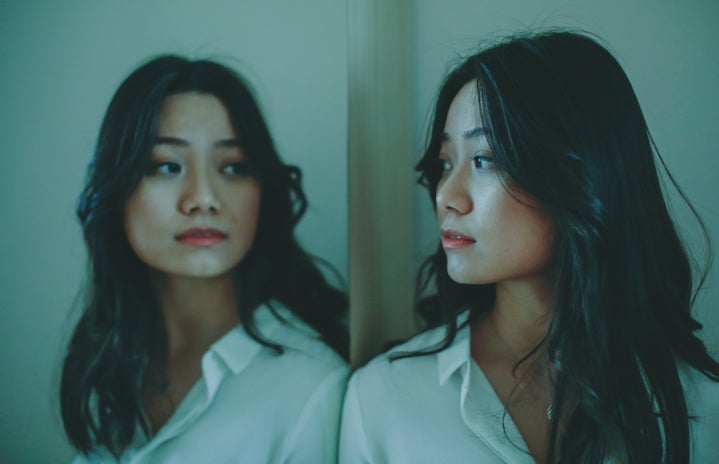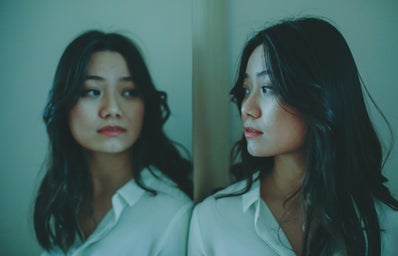Can we talk about Harry Potter and the Disposable Asian Girlfriend? I mean Cho Chang.
It’s no secret that Hollywood has a history of casting Asian women as temporary love interests for white male protagonists. Aside from the Harry Potter franchise, we see this in Scott Pilgrim Vs The World, The Social Network, and the TV show Fargo (all among my favourite movies and shows). Are these writers trying to prove racial inclusivity? Despite trying to, are these roles written in a way that’s damaging to the self-image of Asian women?
Woman As Temptress
To unpack why, let’s take a look at the “Woman As Temptress” plot point from The Hero’s Journey (a popular plot template for screenwriters). At this stage, the hero faces “a goddess who attempts to… tempt [the hero] into desire.” Cho isn’t winking at Harry in a crowded bar the night before his face-off with Voldemort, but she (and other female Asian love interests) may serve as a temptation for the hero to remain stagnant— to be later overcome when he chooses a white love interest. Asian women, it seems, are only enticing at first for their blind admiration and compliance.
Harry Potter and the Order of the Phoenix
Cho admires Harry’s bravery for facing Voldemort at the Triwizard Tournament and for leading Dumbledore’s Army (a resistance group training students in Defense Against the Dark Arts). She shows interest in Harry’s demonstrated nobleness but once together, Harry is put off by her emotional instability. He ends up with Ginny, who despite having a childhood crush on Harry, no longer blindly admires him. She’s assertive; someone to be admired and inspire growth, in a way Cho wasn’t.


Scott Pilgrim Vs The World
“Scott Pilgrim is dating a highschooler”: a sweet Asian girl, Knives Chau. We learn early on that Scott has a romantic history littered with rejection and heartbreak, manifesting in insecurities surrounding girls. Fortunately, Knives is totally impressed and enamoured with him (obsessing over Scott is her primary personality trait), so rejection is off the table. Predictably, Scott leaves Knives for Ramona Flowers, a girl whose trust he has to work for. For Romana, Scott must undergo character development Knives didn’t require.
Fargo, Season 1
Anti-hero Lester Nygaard is introduced as a meek insurance salesman who can’t stand up for himself. As he (spoiler alert) becomes a villain throughout the season, he finds agency through deception and crime. In one instance of deception, he impresses co-worker Linda Park in a display of assertiveness during a customer confrontation. Linda, admiring his bravery, eventually becomes his second wife. She foils Lester’s previous (white) wife, who constantly berated him for his faults— faults Linda never notices. While Harry and Scott leaving Asian women is a marker of their development, Lester choosing an Asian wife is a marker of his stagnation.
The Disposable Asian Girlfriend trope urges the hero to resist falling for naive admirers, to instead be open to partners who can challenge them to grow. Not a bad message. However, this trope operates at the expense of diminishing Asian women to one-dimensional caricatures.
I still love these movies and Fargo is one of my favourite TV shows. Their depiction of Asian women didn’t bother me at first, since I just believed, “Well, that’s not me.” Nonetheless, they’ve implicitly shaped how their audiences view Asian women, whether they’re aware of it or not. Likewise, audiences usually aren’t aware of the unconscious bias these narratives perpetuate— I certainly wasn’t. Now that I see it, I’m no longer separating myself from these women. They’re not weaker than I am, they’ve just been written by people who never had the intention of understanding us.
Asian representation in cinema has come far in recent years, behind and in front of the camera. Who doesn’t feel a rush of awe seeing Sandrah Oh and Awkwafina grace the screen in complex leading roles? I can’t recall Asian actresses from my childhood that I could’ve looked up to like them. It’s exciting that young girls can start feeling represented on screen, rather than feeling, “Glad I’m not that Asian girl.” Though we still have a long way to go, recognizing how tropes affect us is a needed step towards transferring representational agency into our own hands.





